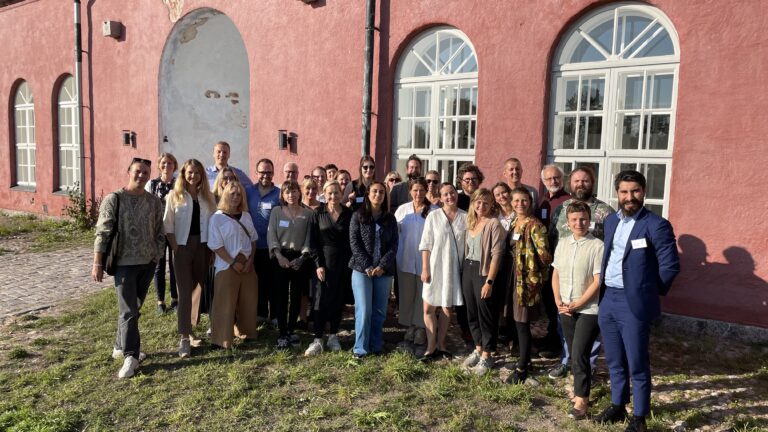How can sustainability, gender equality, and a child and youth rights perspective be integrated into Nordic and Nordic-Baltic grant programmes for culture and civil society? This was the key question addressed when some forty experts from Nordic Culture Point’s expert groups gathered in Helsinki on 5 September.
With participants ranging from Greenland in the north to Lithuania in the south, a wide range of views were represented. The consensus that emerged throughout the day was that one-size-fits-all solutions are ineffective. This was particularly evident in discussions about travel, both as a vital component of artistic mobility in the region and as a necessary but challenging issue in sparsely populated areas. Several experts called for tools in the application process to help applicants make informed decisions about travel.
Resources for Applicants
Arttu Merimaa (FI), chair of the expert group on Mobility Funding within the Nordic-Baltic Culture Mobility Programme, stressed the importance of providing solutions or options that alleviate pressure on individuals.
“We could offer pre-designed routes with the smallest possible carbon footprint, taking into account combinations of different modes of transport. Grant programmes could also support slow travel by, for example, utilizing the network of residencies in our region for artists in transit, sometimes traveling with families,” Merimaa said.
Katarina Lindholm (FI), chair of the expert group on Network Funding, emphasized the need to consider travel not only from a geographical but also from a social perspective.
“Slow travel can come at the expense of other potential incomes, not to mention family life. The personal and economic aspects are part of the broader picture,” said Lindholm.
Long-Term Greater Good
Egīls Šēfers (LV), an expert in the Mobility Funding group, urged participants to expand the sustainability discussion beyond green mobility and consider the sustainability of long-term solutions and complementary forms of support.
“If grant programmes only reward new talents, we will see many ‘new and falling stars.’ It takes years for artists to develop. Our task is to secure initiatives that will strengthen the cultural field over the long term,” said Šēfers.
The experts groups for the Nordic and Nordic-Baltic grant programmes assess and make the decisions on the grants based on the programme criteria and Nordic Council of Ministers’ policy documents. The expert groups will follow up on the sustainability discussion at their next decision-making meetings and they encourage all applicants to reflect on different aspects of the horizontal perspectives as an integral part of their applications.

